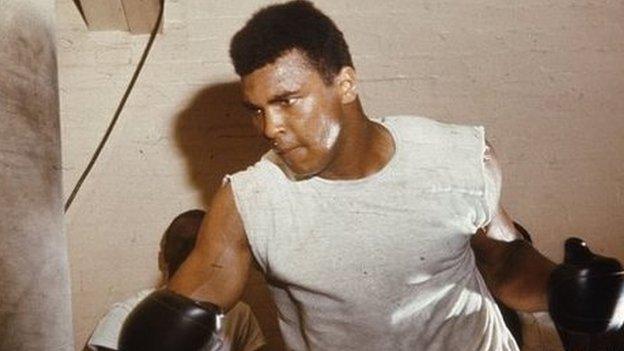Muhammad Ali: The man who changed his sport and his country
- Published
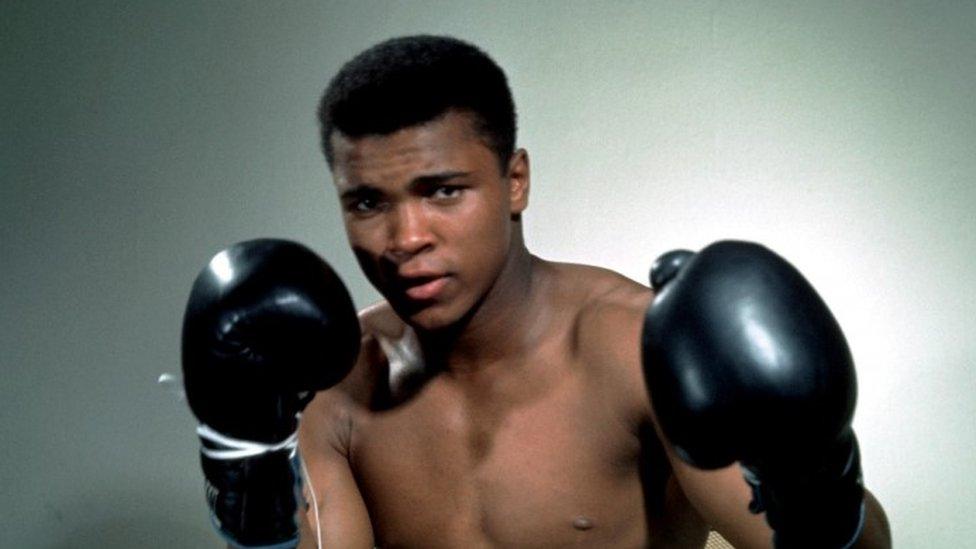
Muhammad Ali exuded power at a time when many black Americans looked upon themselves as being powerless
During an era when African-Americans continued to be treated as second-class citizens, and those living in southern states were subject to an ugly and often brutal system of racial apartheid, few did more to nurture black pride than Muhammad Ali.
The Reverend Dr Martin Luther King Jr may have been the untitled leader of the civil rights movement, winning the Nobel Peace Prize and delivering the finest oration that Americans had heard since the Gettysburg Address, but many young blacks especially did not consider him anywhere near radical enough.
In 1963, Sidney Poitier had become the first black actor to win an Oscar, an important racial first, but that meant little if you were unemployed in Detroit or summoning up the bravery to register to vote in Mississippi.
Ali, after knocking out Charles "Sonny" Liston in February 1964, to become the heavyweight champion of the world, arguably commanded the respect and awe of a larger black constituency.
"I am the greatest," Clay had declared. From a black man, in the midst of one of America's most tumultuous decades, it was not just a boast, but also a statement of immense authority. Ali exuded power at a time when many black Americans looked upon themselves as being powerless.
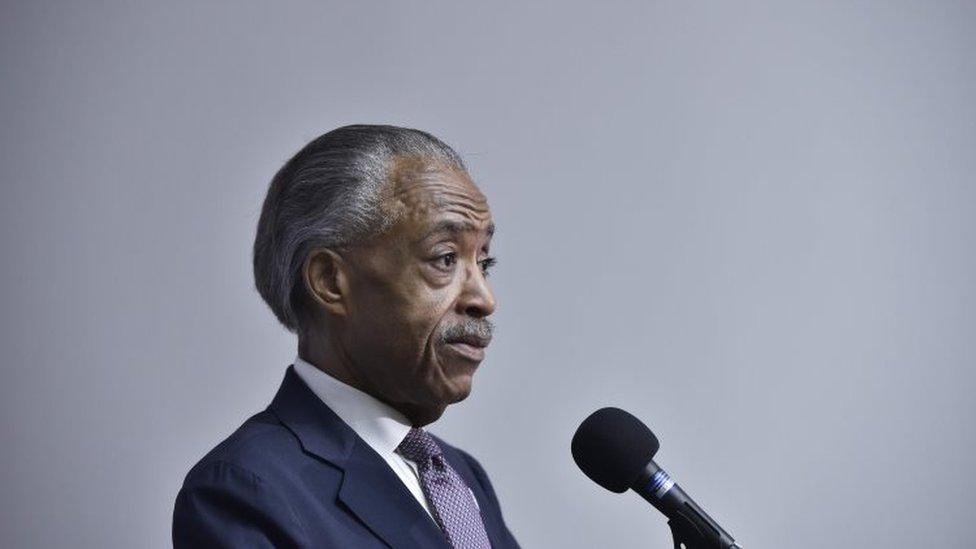
Civil rights activist Al Sharpton has hailed Ali's courage outside of the ring
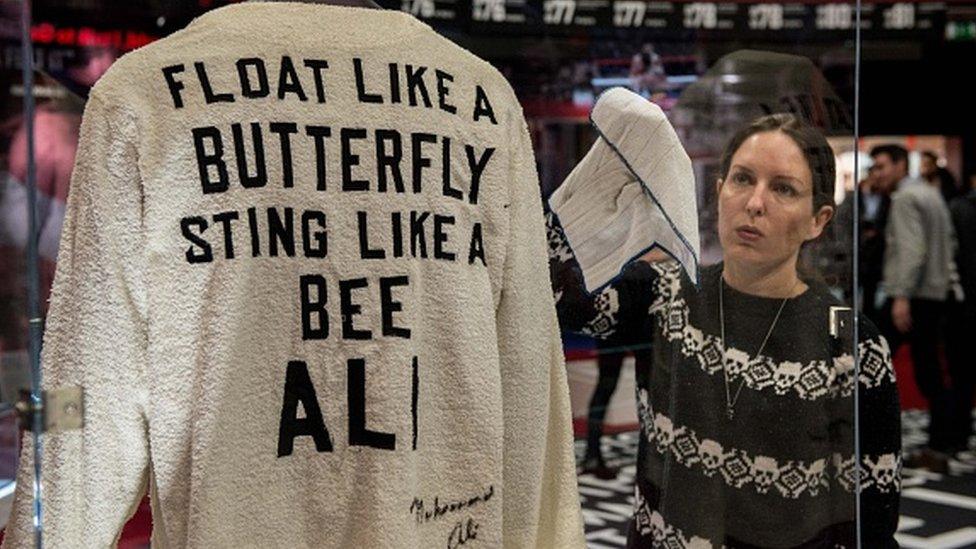
Muhammad Ali succeeded in living up to much of his own hype
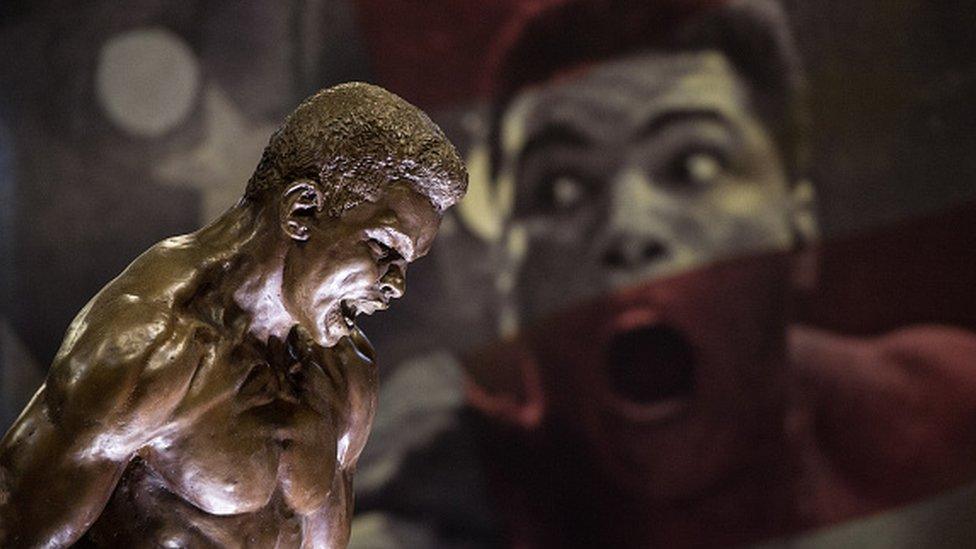
Few did did more to nurture black pride than Muhammad Ali
"To my generation he made it real," said the civil rights leader Al Sharpton, who became a close friend of Ali.
"Here was a guy that we all wanted to be like that was standing for something. I remember as a kid I didn't want be like an old preacher in a suit and tie going to jail.
"You wanted to be Muhammad Ali. You wanted to float like a butterfly sting like a bee. You wanted to be the one that all the girls wanted. You wanted to be the one that could pack arenas. He made it exciting to be part of the movement."
Ali was by no means the first black athlete to hammer at the walls of prejudice.
Jesse Owens had dealt a mighty blow to the idea of white supremacy at the Berlin Olympics - a timely one, too, given that Hitler had intended the games to showcase Aryan pre-eminence.
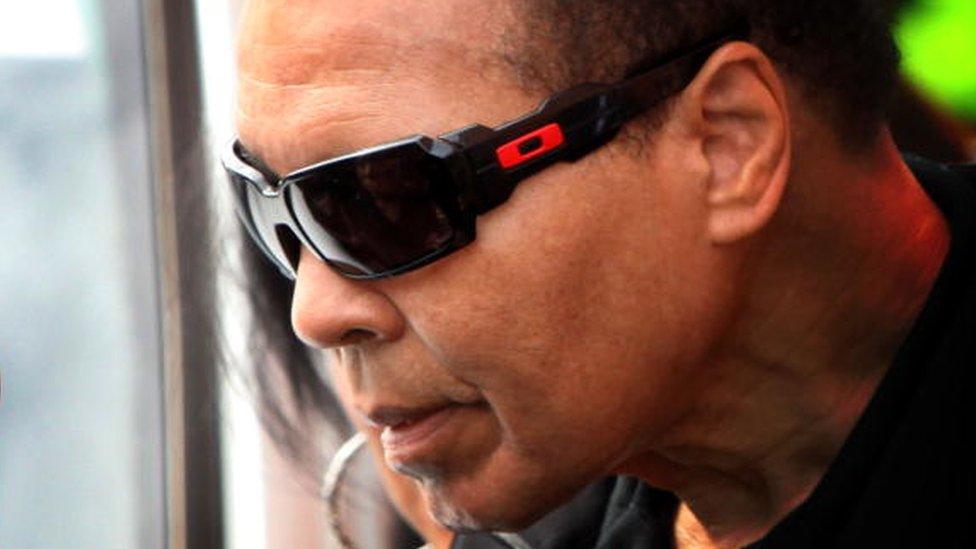
In his later years, Ali's views softened
And in the 1950s, Jackie Robinson, the Brooklyn Dodgers star who became the first African-American to play major league baseball in the modern era, had broken the sport's colour bar. But what set the boxer apart was the way he fused his distinctive voice and outsized personality to the protest movement.
That voice was never anything other than loud, eloquent, highly entertaining and controversial. For much of the 1960s, it was also outside the mainstream civil rights movement.
By changing his name from Cassius Clay to Muhammad Ali just two days after claiming the world heavyweight crown, and by embracing the separatist teachings of the Nation of Islam, the boxer placed himself on the radical fringe of the struggle for black equality.
The Nation of Islam, under its leader Elijah Muhammad and Malcolm X, viewed white men as devils. But even mainstream civil rights figures came to believe that his religious conversion and outspoken advocacy had an energising effect on the freedom movement as a whole.
"The act of joining was not something many of us particularly liked," recalled Julian Bond, who was then a student activist. "But the notion he'd do it, that he'd jump out there, join this group that was so despised by mainstream America, and be proud of it, sent a little thrill through you."
Al Sharpton believes that that Ali was a unifying figure, in spite of his separatist ideology. "Malcolm X would openly attack Dr King, Ali would openly embrace physically Dr King," he said.
"He became a unifying force - that is why I think we made a lot of progress."
Everything on the line
It was not just the struggle for black equality that made Ali such a prominent political figure outside of the ring. His decision in 1967 to refuse to serve in Vietnam made him the country's most high profile anti-war protester.
"I ain't got no quarrel with them Vietcong," he said, citing his religious beliefs. After all, the Vietcong had never racially vilified him.
Rejecting his claim to be a conscientious objector, a court sentenced Ali to five years in prison. He was stripped of his boxing titles. Though he did not end up going to jail, he did not fight for three and a half years. In 1971, the US Supreme Court unanimously overturned his conviction.
At a time when there was still widespread support for the Vietnam War, it was a bold stand to make. It was particularly brave, said Al Sharpton, because Ali risked losing everything.
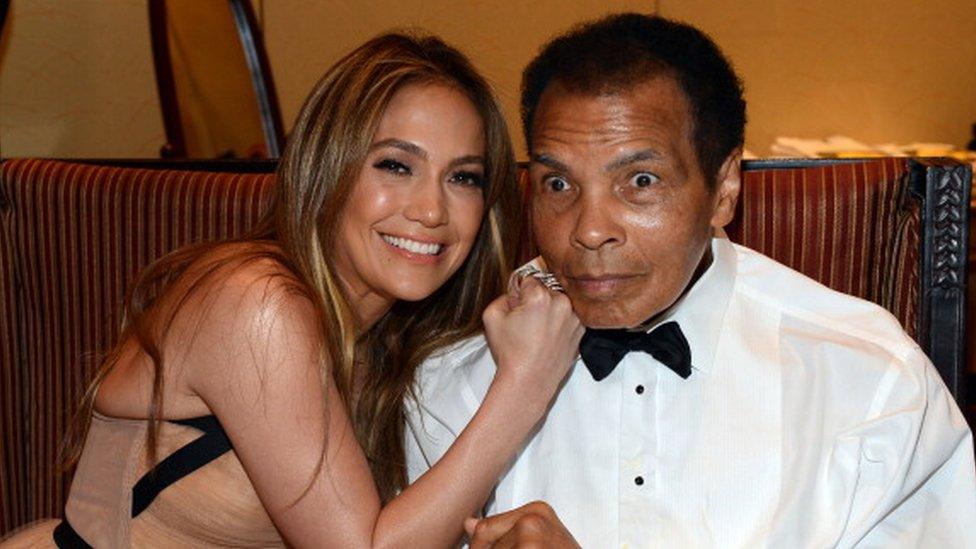
In late life Ali was courted by celebrities and politicians
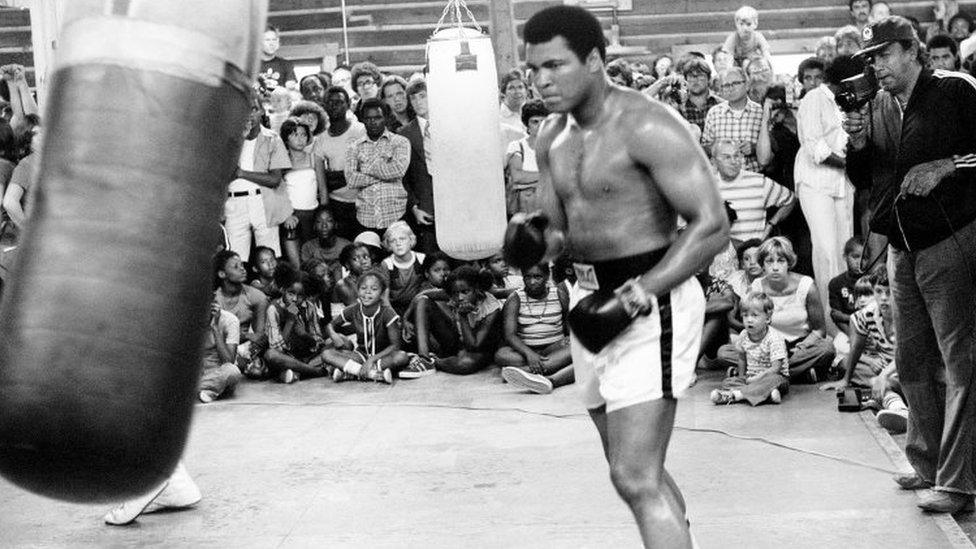
Ali was by no means the first black athlete to hammer at the walls of prejudice
"For the heavyweight champion of the world, who had achieved the highest level of athletic celebrity, to put all of that on the line - the money, the ability to get endorsements - to sacrifice all of that for a cause, gave a whole sense of legitimacy to the movement and the causes with young people that nothing else could have done," he said.
"Even those who were assassinated, certainly lost their lives, but they didn't voluntarily do that," Rev Sharpton added. "He knew he was going to jail and did it anyway.
"That's another level of leadership and sacrifice."
Tony Gittens, a student leader at the time at the mainly African-American Howard University, where Ali once came to speak, said: "It was amazing to see someone of his stature being ready and willing to give up everything on principle.
"A lot of people decided that they were going to be with him. They burned their drafts cards and they took a stand."
In his later years, Ali's views softened.
He rejected the racial separatism promoted by the Nation of Islam. The American establishment, rather than fearing him, came to love him. But, by then, he had already made a matchless contribution to American history as an athlete who changed his sport, and as an activist who changed his country.
- Attribution
- Published17 January 2012
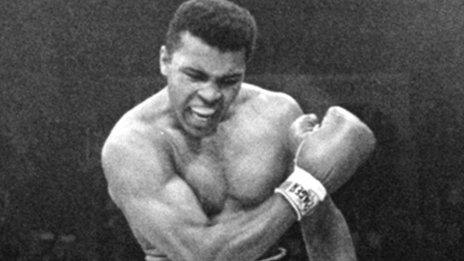
- Attribution
- Published4 June 2016
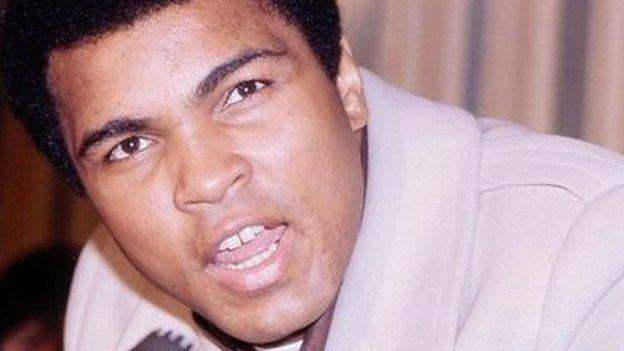
- Attribution
- Published4 June 2016
